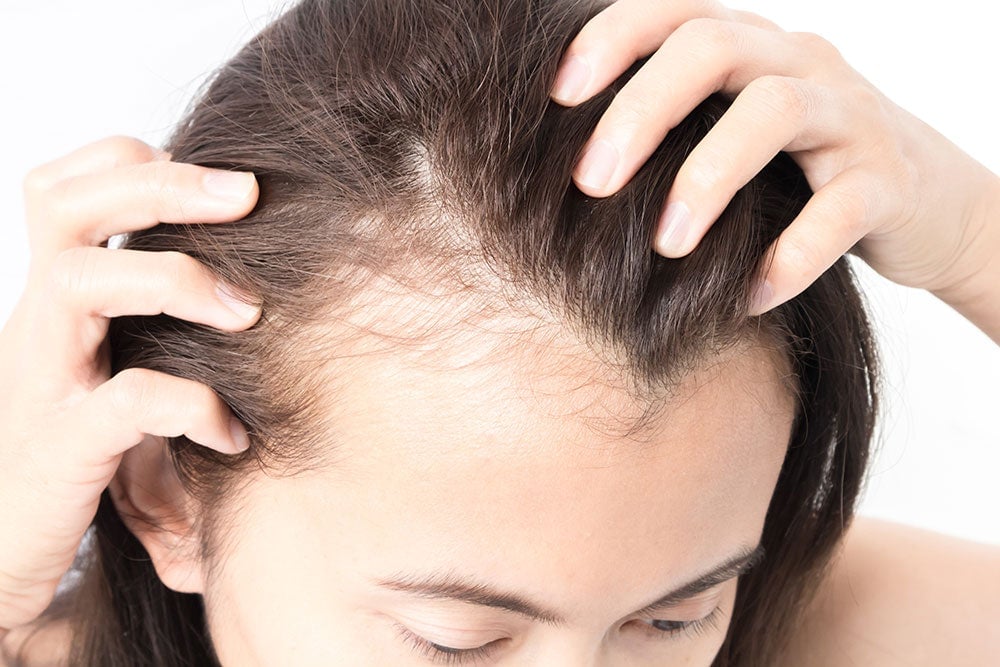Hair Shedding | Hair Loss | Wigs | Toppers
Can Traction Alopecia be Reversed? When Is It Too Late To Recover?

When hair is repeatedly pulled or tightened in the same manner, it can lead to stress and damage of the hair follicle, ultimately causing gradual and then permanent traction alopecia. Women who wear their hair in tight pony tails, ballerina buns, braids or weaves, or wear extensions on a regular basis can start to experience hair thinning as well as bald spots. If caught early enough, Traction Alopecia can be reversed by stopping the cause of the hair pulling and changing the hair style to relieve the hair follicles of the excessive and repeat tension.
HOW TO REVERSE TRACTION ALOPECIA
First and foremost, it is best to give your hair and scalp a break from tension and pulling as this is what causes damage to the hair follicle. Opting for protective hairstyles for traction alopecia can help. This means choosing styles that allow hair to be natural and loose and foregoing tight ponytails, buns, braids or hair extensions. Check out some hairstyles and practices that can help hide traction alopecia and minimize repeat insult to the hair follicles.
SIGNS OF PERMANENT TRACTION ALOPECIA
Signs of traction alopecia typically start with excessive hair shedding, soreness or tightness on the scalp - particularly after letting hair down from being tied up or braided. As the condition persists, signs will become more severe such as itchiness and tightness, swelling at the hair follicle, follicular pustules, broken hairs and balding patches. The hair loss often appears at the hairline and temple region from the excessive pulling and tension. Scarring can also be present and the cessation of hair growth. If you are experiencing these more extreme signs, it is important to see a doctor or hair loss specialist to seek treatment and avoid permanent hair loss. The doctor may do a biopsy to examine medical or topical procedures that may help. If scarring has in fact occurred, there is no topical cream that will generate new hair growth as the follicle has been permanently damaged.
HOW TO PREVENT TRACTION ALOPECIA
The best way to prevent traction alopecia is to be careful with the hairstyles you choose to wear. Sporting a ponytail or bun is okay, but wearing one every day, ALL day long could lead to excessive pulling and tension on the hair follicles. Similarly, if you like to wear tight braids or extensions, it's important to give hair a break and wear hair loose and natural. Everything in moderation! Try not to sleep with hair pulled back, select gentle hair ties and barrettes, alternate wearing hair up and down, loose and natural so the scalp can breathe and relax from repeat friction and strain. Be sure to use hair care products that can help thoroughly clean the scalp and wash away residue and buildup. It is hard to say when it is too late to reverse traction alopecia as everyone reacts differently. It is best to change habits as soon as you notice any of the initial signs and talk to a doctor of you don't notice improvement.
What Hairstyles Work Best for Traction Alopecia?
INTACT 5 - ANTI HAIR SHEDDING TREATMENT



